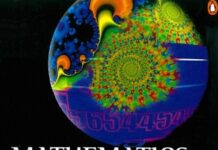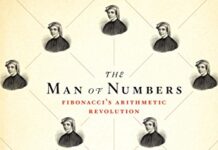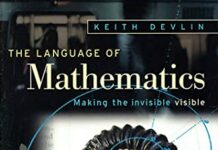
Ebook Info
- Published: 2010
- Number of pages: 208 pages
- Format: PDF
- File Size: 1.29 MB
- Authors: Keith Devlin
Description
In the early seventeenth century, the outcome of something as simple as a dice roll was consigned to the realm of unknowable chance. Mathematicians largely agreed that it was impossible to predict the probability of an occurrence. Then, in 1654, Blaise Pascal wrote to Pierre de Fermat explaining that he had discovered how to calculate risk. The two collaborated to develop what is now known as probability theory — a concept that allows us to think rationally about decisions and events. In The Unfinished Game, Keith Devlin masterfully chronicles Pascal and Fermat’s mathematical breakthrough, connecting a centuries-old discovery with its remarkable impact on the modern world.
User’s Reviews
Editorial Reviews: About the Author Keith Devlin is a Senior Researcher and Executive Director at Stanford’s Center for the Study of Language and Information, a Consulting Professor in the Department of Mathematics, and a co-founder of the Stanford Media X research network. National Public Radio’s “Math Guy,” he is the author of over twenty-five books. He lives in Stanford, California.
Reviews from Amazon users which were colected at the time this book was published on the website:
⭐Many textbooks on mathematical probability mention as a brief aside the correspondence between Pascal and Fermat on the subject of settling fairly a wager on an unfinished game. And many of the popular science style books on probability which have substantial historical components (amongst my favorites,
⭐and
⭐) devote a few pages to this topic. The first half of Devlin’s book, whose style positions it slightly more toward the “serious” end of the popular science spectrum, presents and discusses the correspondence, accompanied by background about the lives of the two principals and their contemporaries. Having a detailed yet easy to read account of this subject is a very welcome addition to the literature.I’m less enthusiastic about the second half, consisting of briefer accounts of the contributions of people such as Graunt, the Bernoullis, Gauss, Bayes and fast forwarding to DNA testimony and Black-Scholes. Much of this material is similar in spirit to that in existing books (such as the two mentioned above) which paint a broader and richer historical picture. Moreover the implication that there’s some kind of meaningful direct line from Pascal-Fermat to the present mathematical understanding of probability, risk etc seems to me just misleading. In core areas of mathematics (geometry, algebra, calculus ..) there was a continuous historical development, in that people consciously learned and built upon what was known before. In contrast, pre 20th century mathematical probability was more a disjointed collection of small topics initiated by different individuals with different motivations — metaphorically, an archipelago not a continent.Note: The listing as 208 pages may be misleading (the pages are smallish and the typeface large), though the price is still very reasonable.
⭐Anything by Keith Devlin is perfect. If you want a really grand weekend, buy several of his books, turn off your cellphone, lock yourself away from the world with a pot of coffee or tea, a couple of Snickers bars and dive right in. His writing is wonderful, clear as can be and what could be more fun than a pile of beautifully written math books. Mathematicians are, in general, exquisite writers. You might want to try Men of Mathematics by E.T. Bell in this weekend as well. And, anything Simon Singh. If I know you will get Keith’s book I will be very happy for you.
⭐Moderately entertaining and fairly informative. But not exceptionally written. I know a little more about the origins and anatomy of probability theory, so that makes me happy.
⭐The unfinished game tells the story of the development of probability theory. From its early beginnings, on to Gaussian distribution and Bayes theorem all the way up to its central role in modern risk and finance theory. It’s an easy read, mostly historical with interesting anecdotes. However it also manages to teach you a little probability theory and statistical thinking along the way. In short a great little arm chair math book that is highly recommended for both laymen and professionals alike.
⭐Not for everyone but it was interesting, well written and made a clear point that recently it was believed by all to be impossible to predict the future.
⭐It is a pleasent book to read, especially for those interested in probability theory. I would have liked the author writing more about stochastic simulation. This is a technique which solves problems which mathematicas cannot solve, and has only come of age in recent years with speedy PCs.
⭐A fun book for those interested in Game Theory. While not a book for everyone, this one presents a good description of one aspect of this field of mathematics, and is actually so well written that it is fun reading.
⭐A biography of a problem and its solution. Only way to describe it. Absolutely brilliant. I used to have an autographed copy (sadly not by Pascal or Fermat), now have a digital replacement. That’s how valuable the book is.
⭐As a student of “Randomness” and “Chance” as an amateur mathematician I found this book a bit dull.
Keywords
Free Download The Unfinished Game: Pascal, Fermat, and the Seventeenth-Century Letter that Made the World Modern in PDF format
The Unfinished Game: Pascal, Fermat, and the Seventeenth-Century Letter that Made the World Modern PDF Free Download
Download The Unfinished Game: Pascal, Fermat, and the Seventeenth-Century Letter that Made the World Modern 2010 PDF Free
The Unfinished Game: Pascal, Fermat, and the Seventeenth-Century Letter that Made the World Modern 2010 PDF Free Download
Download The Unfinished Game: Pascal, Fermat, and the Seventeenth-Century Letter that Made the World Modern PDF
Free Download Ebook The Unfinished Game: Pascal, Fermat, and the Seventeenth-Century Letter that Made the World Modern




